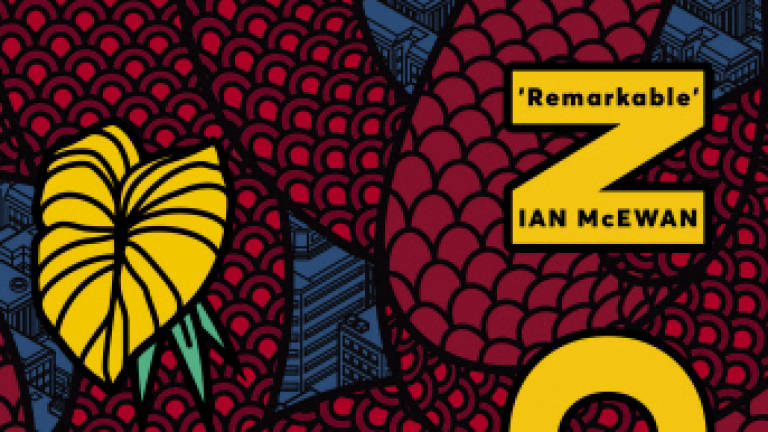The monsters hidden within


WHEN your manuscript wins a sought-after prize and is published by a top-tier publisher, you know you have done something right.
That was the case for Sharlene Teo (below), a UK-based Singaporean writer who won the inaugural Deborah Rogers Foundation Writers Award in May 2016 and the £10,000 (RM53,670) in prize money for her first novel, Ponti.
At that time, she had barely written 60 pages, or some 25,000 words, of that manuscript.
“So when I won [the award] in May, I was working on [the manuscript] all the way to September,” said Teo, 31, during a tele-conference call from Singapore.
Teo holds an LLB (bachelor of law) from the University of Warwick and studied at the University of East Anglia (UEA) in creative and critical writing.
In 2012, she was awarded the Booker Prize Foundation Scholarship to undertake an MA (master of arts) in prose fiction at UEA.
She is also the recipient of the 2013 David T.K. Wong Creative Writing Fellowship, the 2014 Sozopol Fiction Fellowship, as well as fellowships from the Elizabeth Kostova Foundation and the University of Iowa International Writing Programme.
When she finally completed her manuscript, it was submitted to the Frankfurt Book Fair.
Ponti was later picked up by Picador and published in the UK in April this year. The book has been enjoying good buzz since then.
The story is told from the viewpoint of three Singaporean women in three different periods of time.
It begins with Szu, a socially-awkward teen who lives with her beautiful but emotionally-distant mother, Amisa, a 1970s actress of a horror film series called Ponti.
Amisa has her own story about coming from an impoverished family, heading to the big city as a teenager and being discovered by a film director.
The third person is Circe, Szu’s more worldly friend and confidant, who reflects on their friendship some two decades later.
When asked how different the original manuscript was to the book, Teo said: “It is not that different. The first 60 pages that were submitted were in fact the first 60 pages of the [now 293-page] novel.”
The title, Ponti, can be taken as a shortened reference to the pontianak, a female vampiric ghost in Malay mythology.
Teo said: “I have always been fascinated by the pontianak mythology, the Malay myth about a woman who dies at childbirth, the kind of myths and superstitious neighbourhood mystery.
“This monster that enters a domestic space – I was interested in how we perceived women as villains or monsters.
“The pontianak is this attractive woman but when you look at her closely, she is all these monstrous things.
“So I was very interested in how we perceive a woman and female beauty. So I combined that with [Amisa’s] movies.”
Amisa is an actress who dreams of becoming a big star. “She never really makes it and she never becomes famous enough.”
Teo said that Amisa is manipulated by the director into thinking that he sees more in her than her beauty. Obviously, tired of being objectified, Amisa falls for this, but when the movies don’t take off, neither does her career.
Teo said she developed Amisa’s character first, adding that “people are kind of surprised by that”.
Perhaps, it is because the story begins with Szu, and it is Szu whom we relate to the most.
Teo explained: “I started to write a novel from the point of view of a pontianak but it didn’t really work. So that was when I started thinking about this character, Amisa.”
But she admitted that Szu is essentially the heart of the story.
“Szu is meant to be relatable. She is kind of the narrative guide. She is easy [for us] to empathise with or sympathise with, unlike Amisa and Circe.
“In a way, Circe is more like Amisa than Szu is.”
As to why she chose to write the story from the point of view of three characters, Teo said: “I don’t know. It just came to me. I think it is because I tend to write organically.”
And unlike many Asian female writers who like to focus on generations of suffering women, Teo penned a story about women, especially Amisa, who chose to live on their own terms.
“Amisa chooses to be lazy. Later in life, when she is offered supporting roles, she says why should she ... be pigeon-holed because she is ageing.
“In her marriage, she has so much control. Even with her husband ... she chooses to keep him at arm’s length.
“So it was deliberate on my part to write a more realistic story on how people behave.”
Teo is currently busy promoting Ponti.
As for her next book, “I am a quarter of the way through but it will take a while to get there.”
Ponti is available on MPH Online at RM79.90.